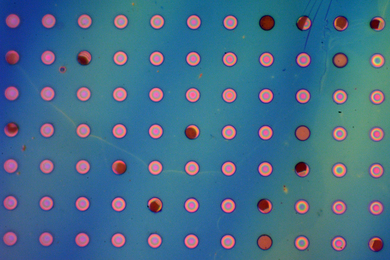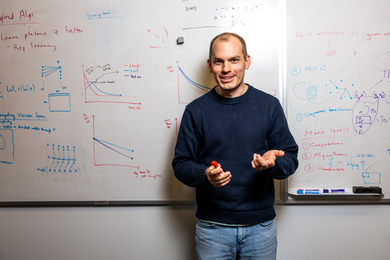Li-Huei Tsai, the Picower Professor of Neuroscience at MIT, director of the Picower Institute for Learning and Memory, lead investigator of the Aging Brain Initiative at MIT, associate director of the Glenn Labs for Aging Research at MIT, and a Broad Institute senior associate member was named the recipient of the Society for Neuroscience Mika Salpeter Lifetime Achievement Award. This Mika Salpeter Lifetime Award recognizes an individual neuroscientist with distinguished achievements in neuroscience that actively promotes the advancement of women in neuroscience.
Tsai’s laboratory studies the brain from the genes to higher order cognition such as learning and memory as well as brain disorders such as Alzheimer’s disease. Tsai’s career began with her studies on a protein called cyclin-dependent kinase 5 or Cdk5, which has been found to affect neurodegenerative diseases. She has also studied the cellular machinery that controls the activation and inhibition of genes, also known as epigenetics. In addition, her work on integrating molecular, physiological, and circuit based experimental approaches has provided great insight into the processes of learning and memory. Currently, Tsai’s lab is working to create non-invasive treatments for mice with Alzheimer’s disease.
“Li-Huei Tsai is an extraordinary scientist who has made far reaching and innovative discoveries,” says Michael Sipser, professor of mathematics and dean of the MIT School of Science. “She was the first to demonstrate the importance of epigenetic gene regulation in Alzheimer’s disease. Her lab identified epigenetic modifying enzymes that regulate genes underlying memory formation and further demonstrated the importance of epigenetic modification in Alzheimer’s patients and in mice with Alzheimer’s disease. She has provided important evidence that Cdk5 is an important mediator of deficits found in Alzheimer’s disease mouse models. Aside from her major contributions to a better understanding of Alzheimer’s disease, her pioneering work provides several exciting new targets for therapeutic intervention of Alzheimer’s disease.”









